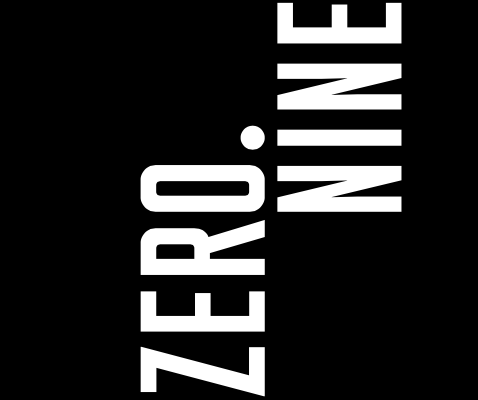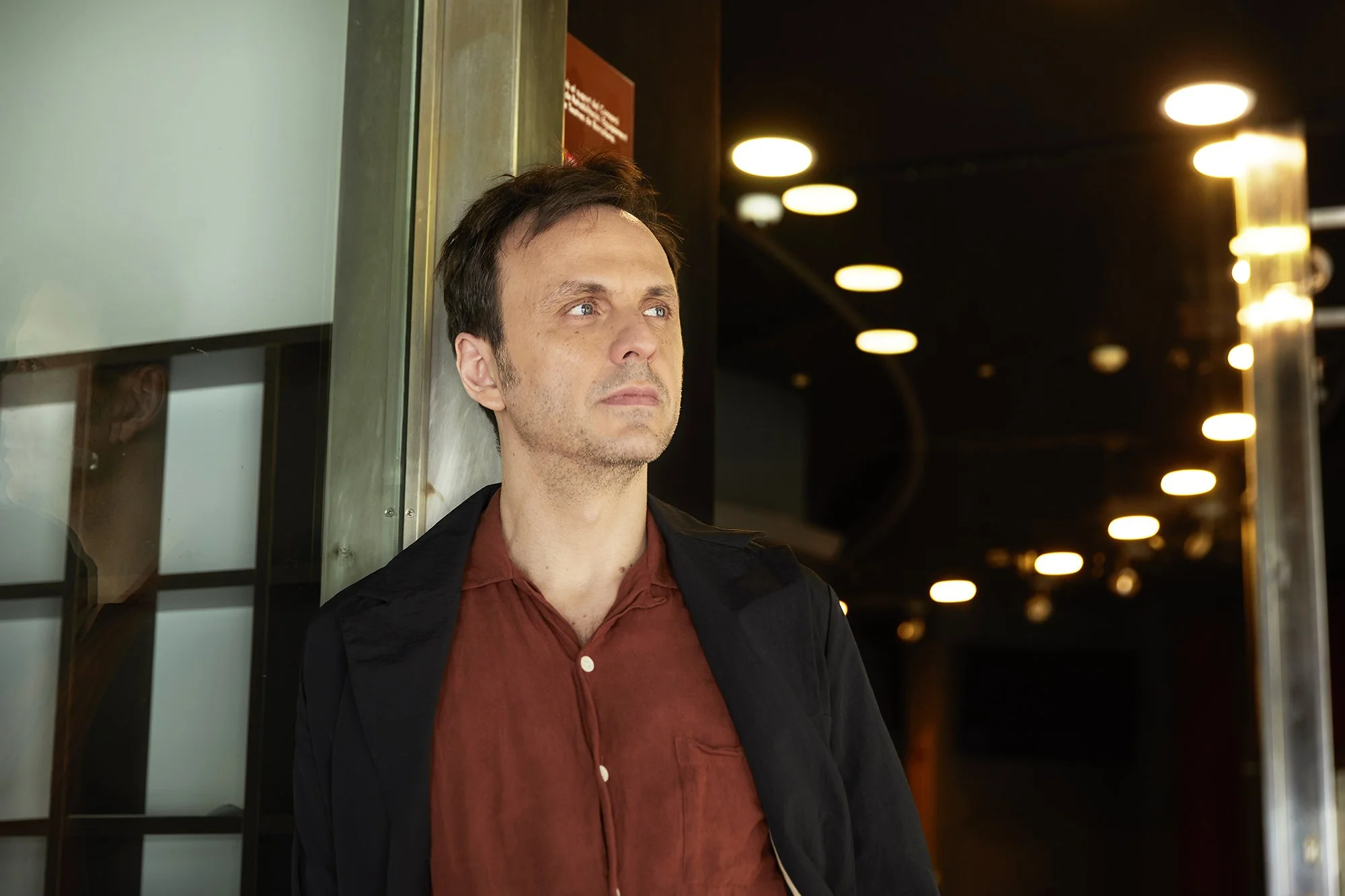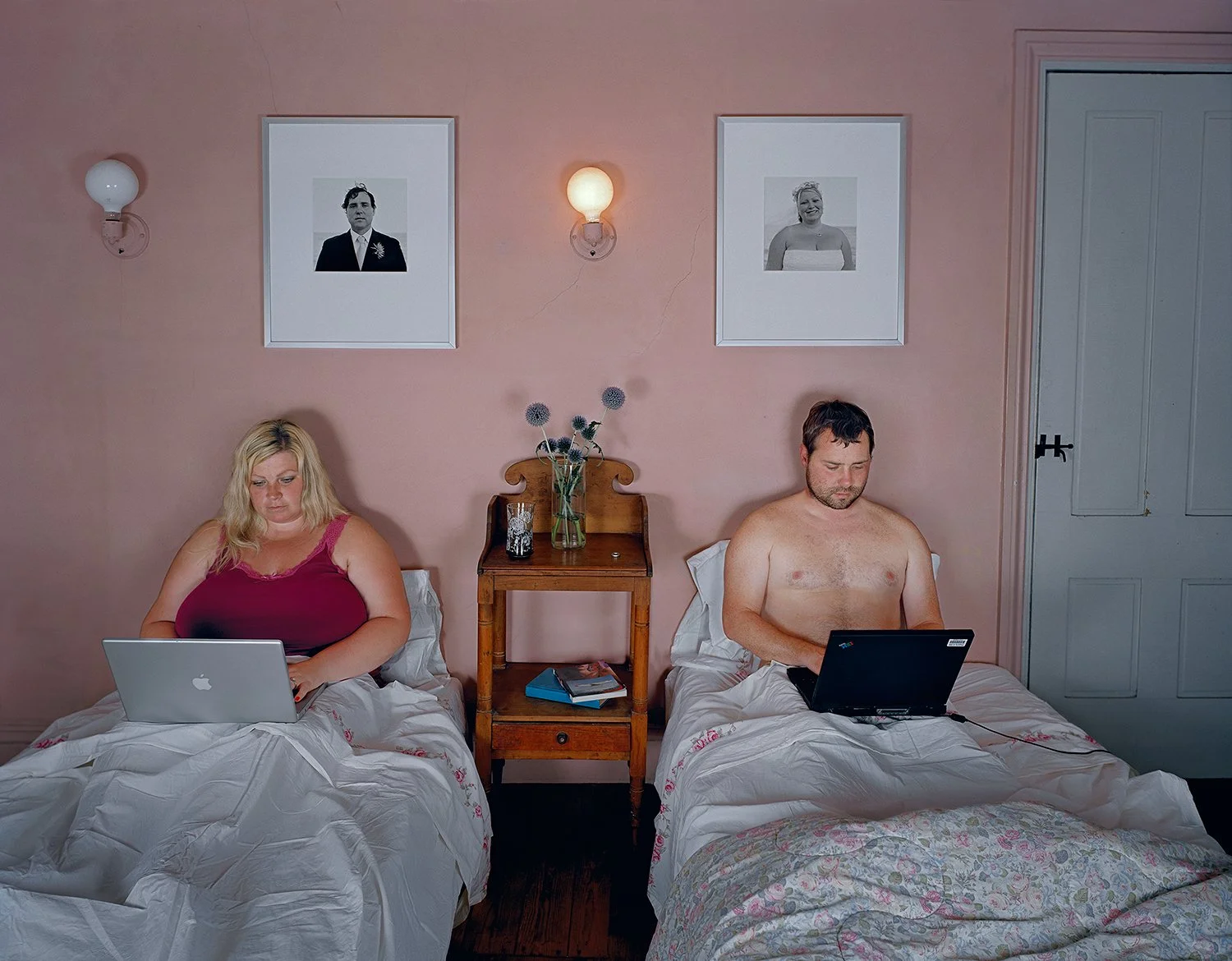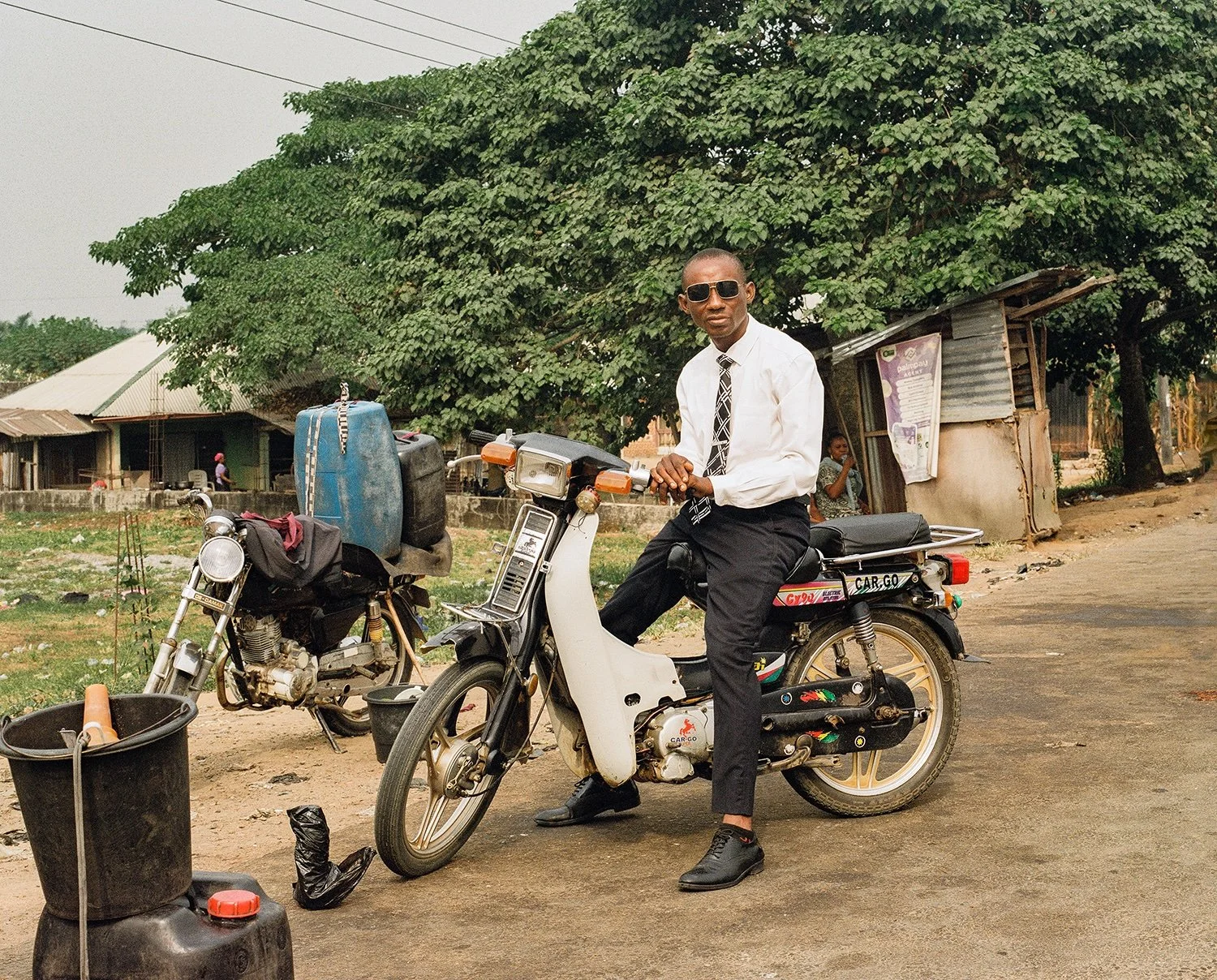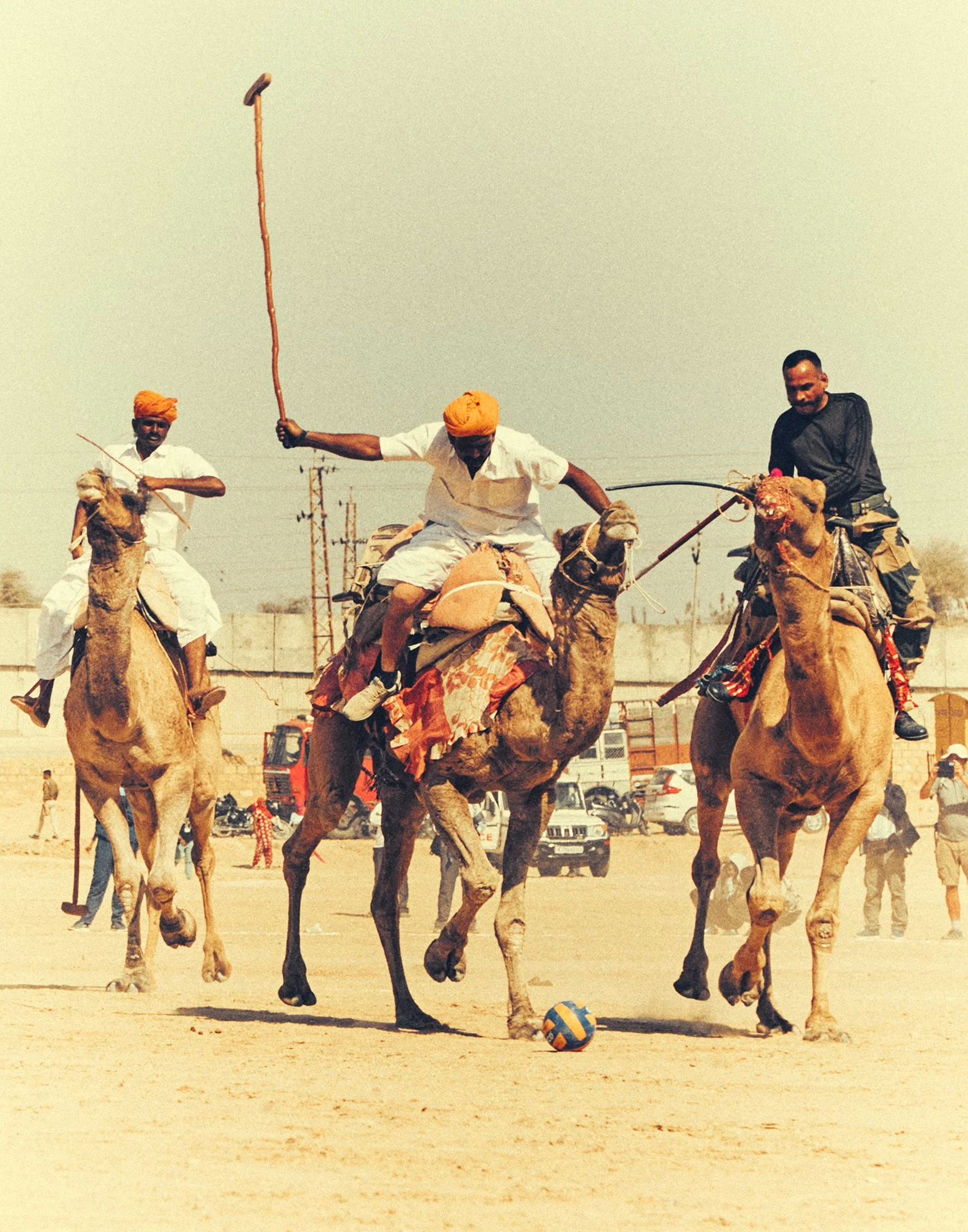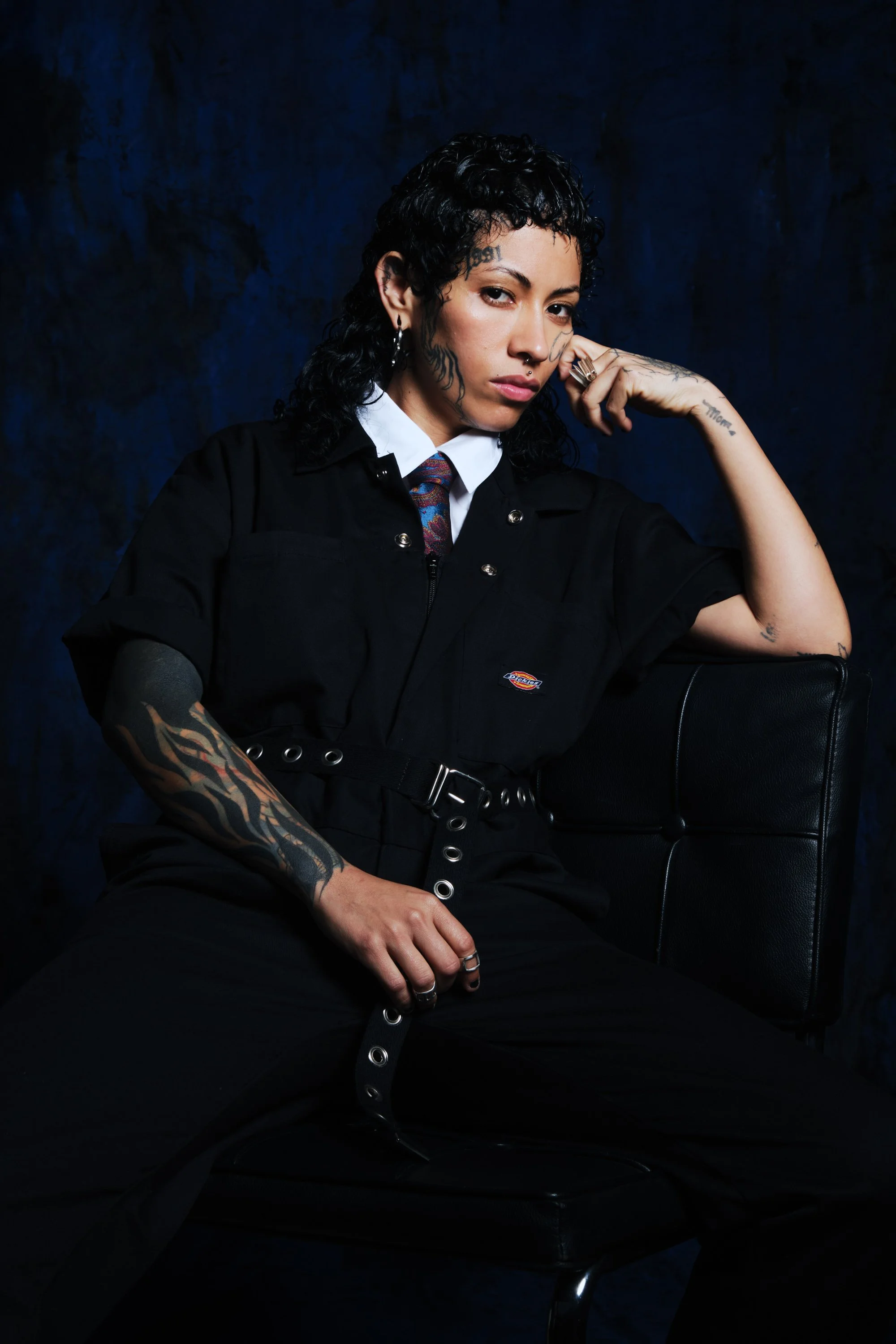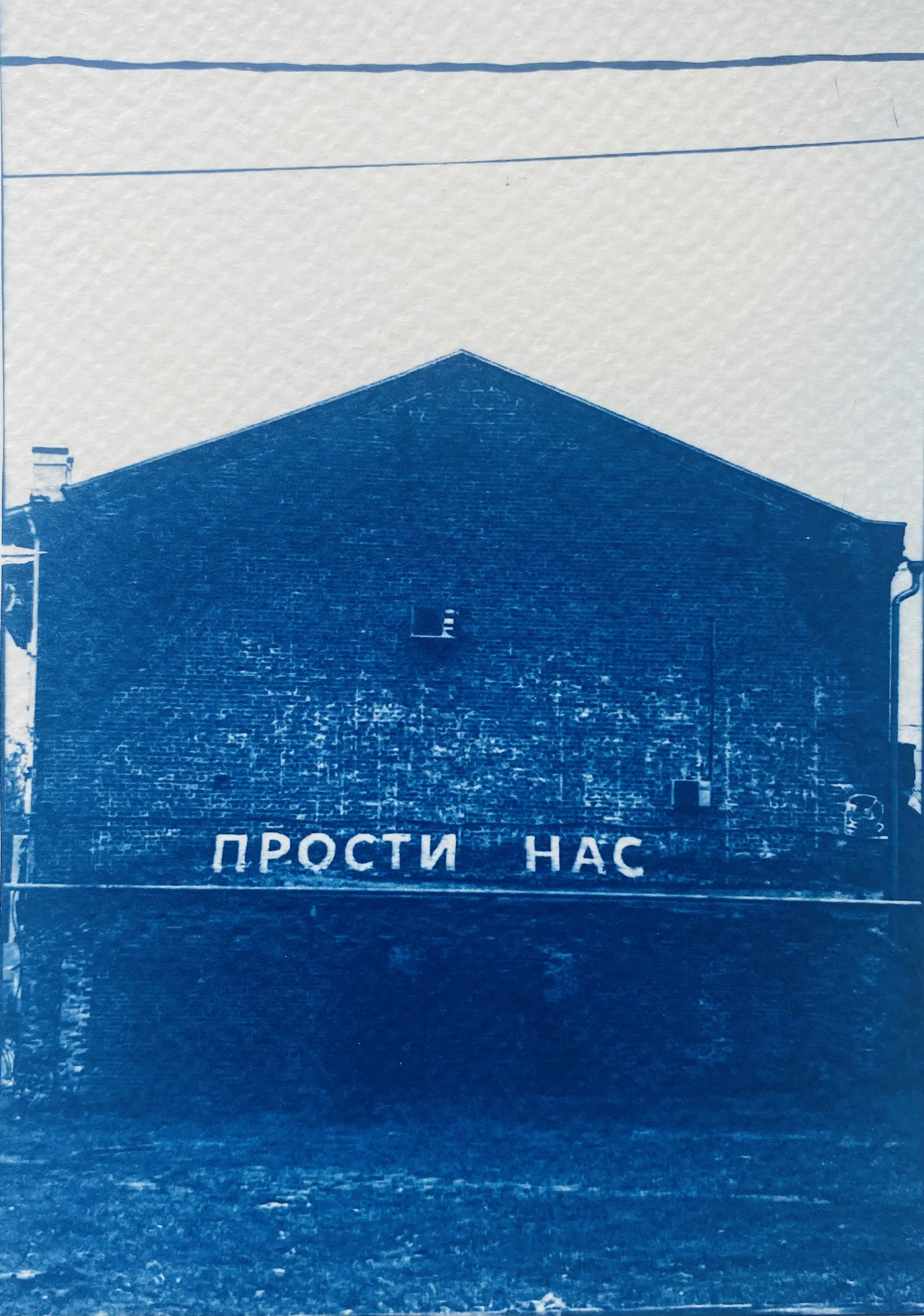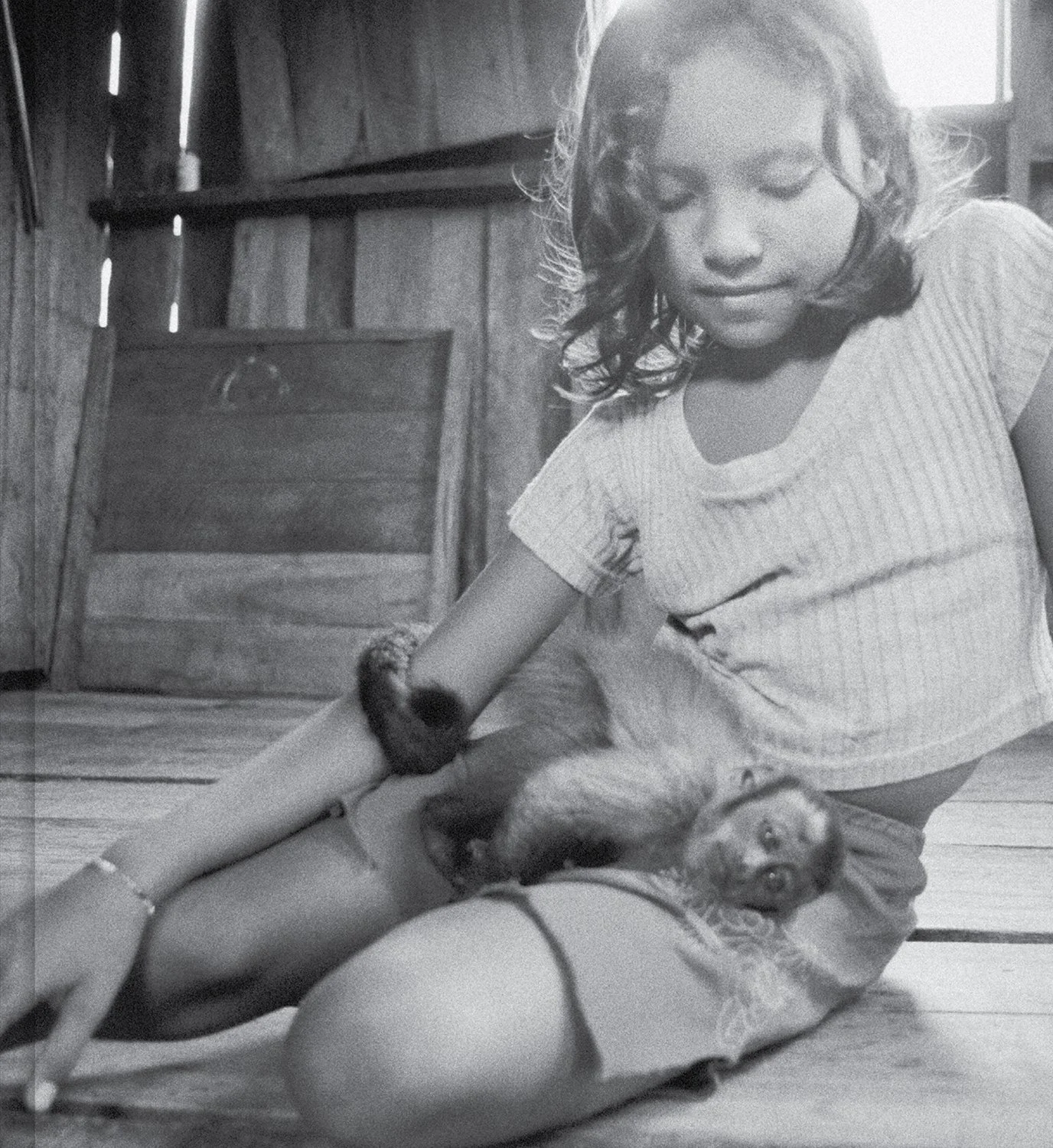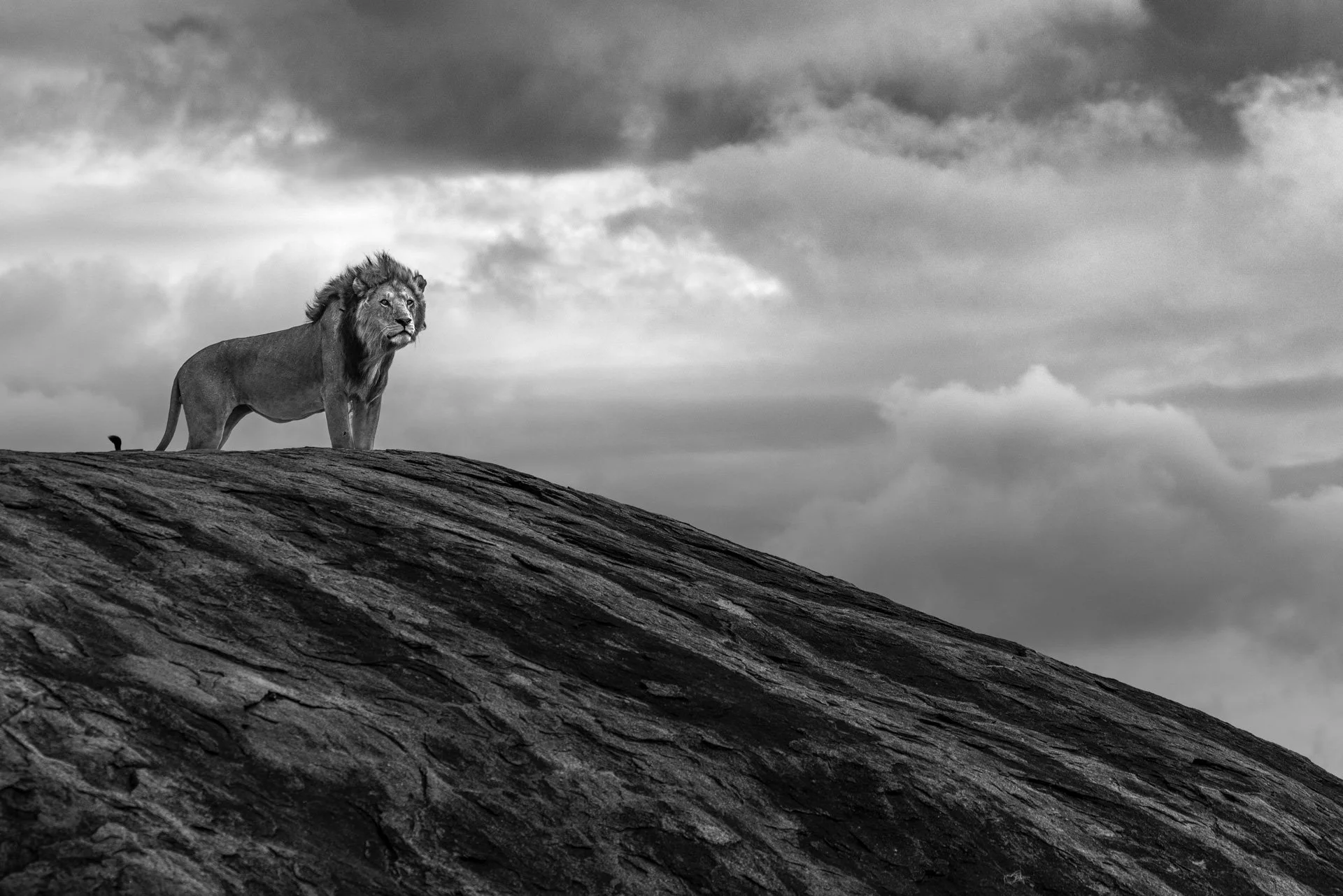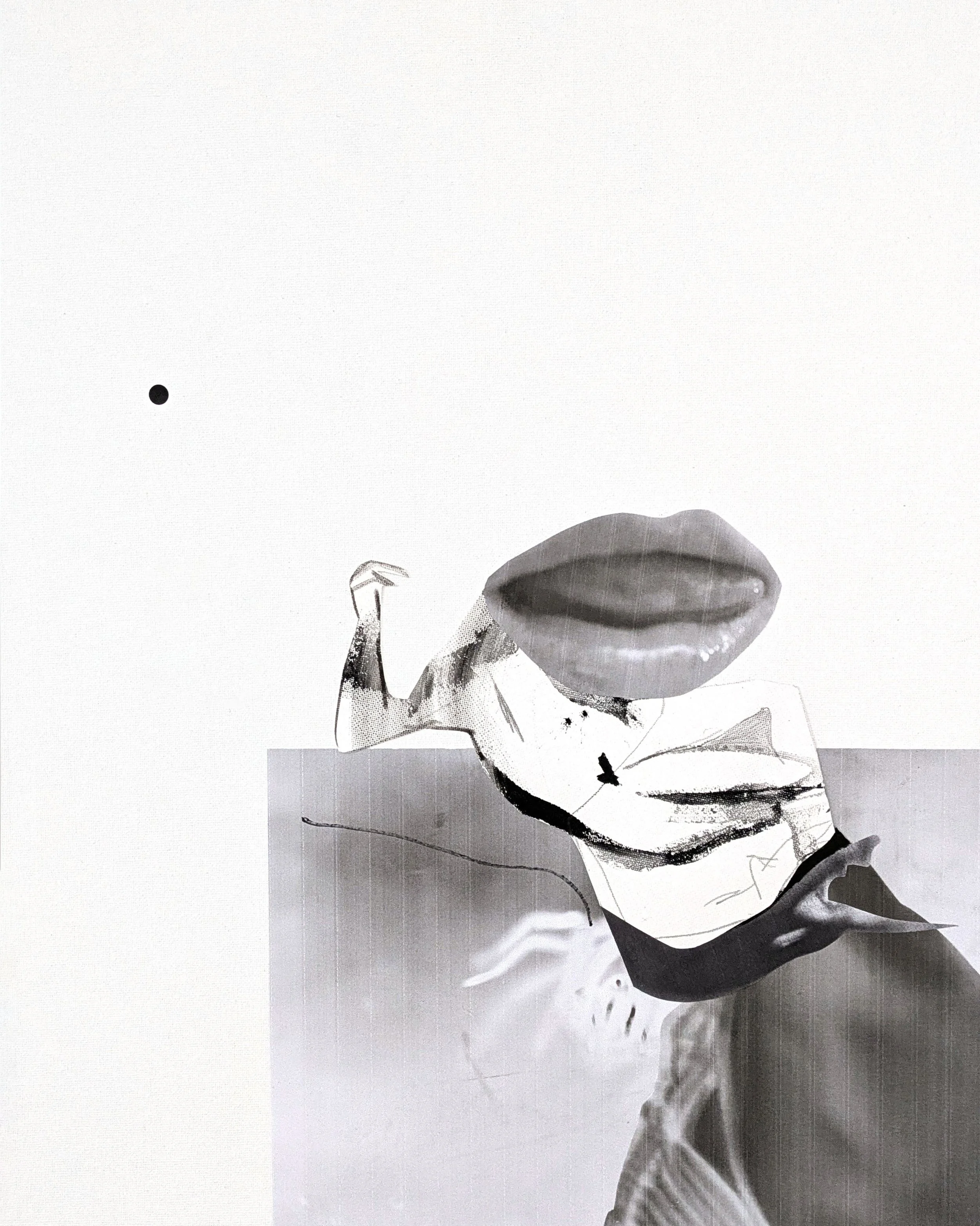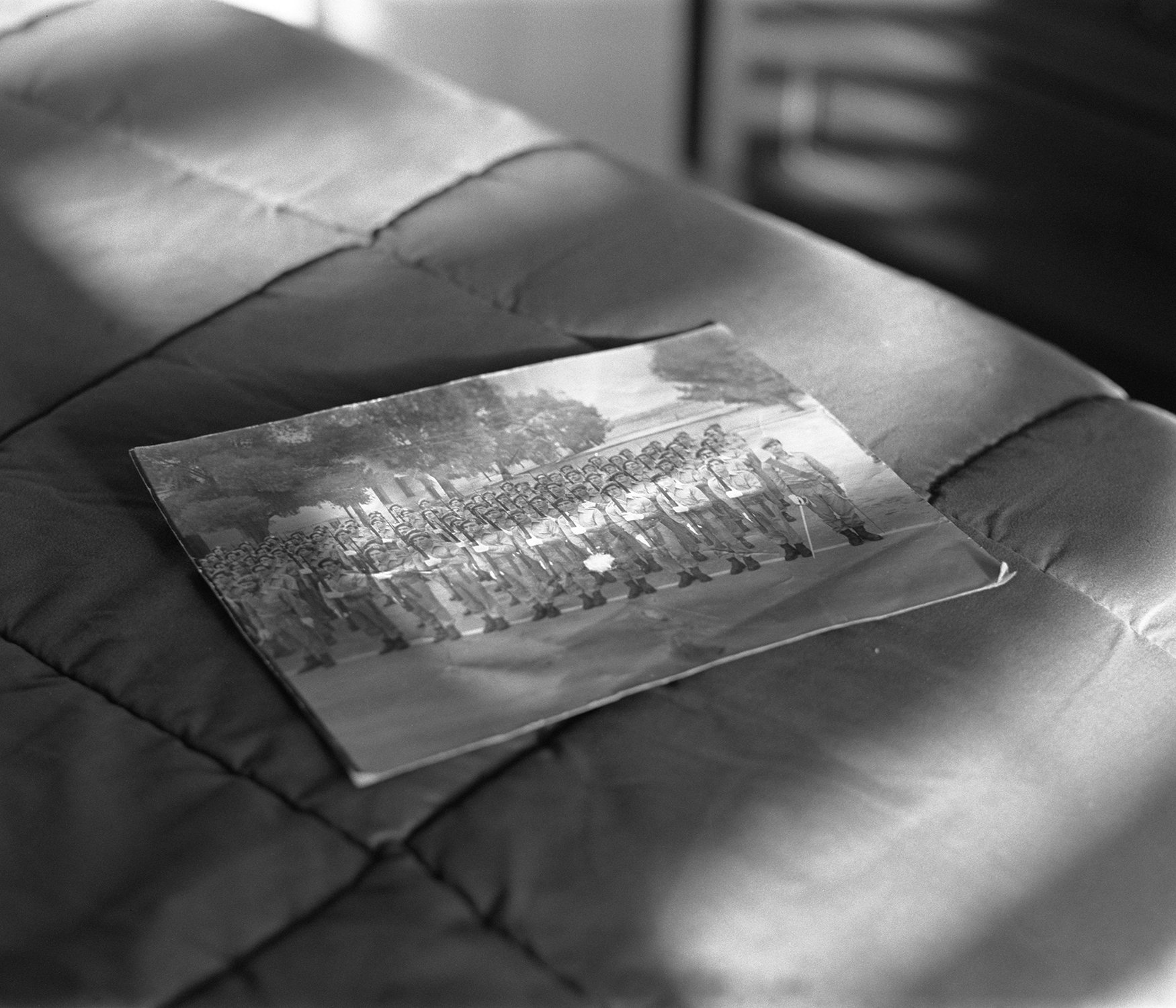Understanding where we come from
Renowned Spanish actress Bruna Cusí sits down with playwright Iván Morales to talk about the art of acting, current times in the industry and their new theatre adaptation El día del Watusi, a play directed by Iván coming out this July at the Teatre Lliure in Barcelona.
Interview Bruna Cusí Photography JC VeronaPolo shirt - Ben Sherman
Bruna – What are you up to right now?
Iván – I have three projects in the works from a few years ago, on which I will continue working for a few more years, but right now El día de Watusi (The Day of the Watusi) is in pole position.
It's been a while since you read the novel, right?
First I read El Secreto de las Fiestas (The Secret of the Parties) by Francisco Casavella, and I realised that he was the same guy who had written the script for the movie Antártida (Antarctica), or that the film El Triunfo (The Triumph) was inspired by his novel. I knew about those projects because, as an actor, I went to the castings. And I knew Casavella, because he was a very tall gentleman with a grumpy face, whom I sometimes bumped into around my neighbourhood. So I read El día de Watusi, and I told myself that one day it would be cool to make it.
Make it in theatre?
First in theatre, yes, because I felt that the novel passes through many eras and many spaces and it would give a lot to play at a scenic level, and also it would allow us to evoke everything that the novel proposes in a more communal way, especially for what it claims for a collective story of the city of Barcelona in the final quarter of the 20th century.
Sure. Because, for those who don't know the novel and what is it about?
The novel goes through three specific adventures between 1971-1995, starring a hustler, a rogue and a cheeky person who goes about without knowing where he comes from: Late Francoism, the Spanish transition and the Olympic dream seen through the eyes of the absolute losers, the extras.
Suit - Eñaut Tee - Calvin Klein
“As long as I talk about human and urban conflicts I want to be in the place where they occur to their greatest extent.”
Suit - Eñaut Tee - Calvin Klein
Bruna – Art projects always talk about things that have to do with oneself. There is something that the story connects where you come from, even if you don't do auto-fiction. Because you have seen and known these types of characters in your life.
Iván – Yes, of course. I connect in a very deep place with characters whose story no one listens to because it seems they don't have space. Few things move me more than giving them a voice at the hands of actors with as much empathy and generosity as you have.
You decided to work at a slow pace and make Casavella's novel, El día de Watusi, in three acts. How is this process coming along?
Well, you know that it is increasingly difficult to build work processes that are not the conventional ones, productions are more and more conservative. But, in order to offer the public something special, it was clear to me that we would need to give ourselves the opportunity to investigate, while never ceasing to be ambitious.
We live in a very fast-paced time. Producing a lot and releasing quickly and it seems there is not enough time to enjoy the rehearsal process, to research your characters, to meet the people you are working with and to make the most of the project.
I would have liked to have the funding to have the whole team working for a year every morning, but it couldn’t be like that so I’ve invented this formula of meeting each of them individually, doing an exclusively musical work stage, presenting the beginning of the first act while I continue working on the rest and we’d be able to learn from the work we are doing and even rectify... not all the works are created in seven weeks, and in fact the ones we like the most, like when Miet Warlop or Jan Lawers shows here, we love it, or the most powerful local companies such as Las Huecas or El Conde de Torrefiel, take their work seriously enough to take the necessary time. I also tell you that doing a work like this, in this way, requires an effort that is unsustainable in our context, which is why I consider it a personal adventure, a unique experience in my life that I will surely not repeat.
Jacket - Fred Perry Shirt - COS
“I connect in a very deep place with characters whose story no one listens to”
Polo shirt - Ben Sherman
Polo shirt - Ben Sherman Trouser - Estado de Ruido
Bruna – How does being an actor condition your way of directing?
Iván – A very beautiful thing happens thanks to the tools of interpretation, when we let ourselves get absorbed by the characters, we sacrifice ourselves and give ourselves to them. The best thing about our job is that we are emotionally very generous, we give ourselves away to the characters we play, and we love them, whoever they are. Locking myself in a rehearsal room directing actors is one of the things that gives me the most happiness in life, but of course, I need to direct actors I admire, like you.
What I like and surprises me about your casting is that you choose a type of actor who is on the margins, they are not conventional actors or actresses.
Well, for example, a work like Watusi calls for a Watusi cast. We want to talk about our identity, and the issues that the material confronts us, force us into a humanist dialogue, in which not only how you position yourself as an instrument, but as a human being who puts his emotions and his heart, everything that your soul brings with it, to embody these characters. If we don't work from there, the human catharsis that I ask to make theatre is devalued.
What I have found when working on my own projects is that lately what is of interest are trend issues, and it might even seem that the struggles of minorities end up becoming a trend that, depending on the moment, is more or less in demand.
It is a somehow a strange situation because they are taking away the artist's agency to decide what they want to talk about. And that is something that I find difficult to understand because, as I understand it, the greatest responsibility of directors, playwrights, etc., is to be aware of the world that surrounds us and, since the work processes are so demanding and require work from the greatest honesty, the power to decide what topics we want to investigate should be ours.
Shirt - Estado de Ruido Trousers- Levis
“They are taking away the artist's agency to decide what they want to talk about.”
Total Look - Pablo Erroz
Bruna – Also, we are talking about processes that can be very slow. If you have to write a commissioned work according to the topic of a trend, you must write it at that moment so that the wave does not pass you by.
Iván – Well, in that sense I am quite self-critical of our sector. We are like vocational bourgeois, almost no one earns enough to be, but the mentality is too often that, and I feel that we lose the focus of responsibility a bit and dialogue with the world from a position where sometimes the line between opportunity and opportunism can be very fine. If I live in the Raval neighbourhood, it is largely because of my militancy as an artist, as long as I talk about human and urban conflicts I want to be in the place where they occur to their greatest extent, the radio or Twitter doesn’t have to explain it to me, I leave home and I see it.
You are particularly an observant person who likes to do a lot of research, what are your current obsessions?
Wow, many, but well, right now mainly Barcelona, because it is in the middle of a brutal identity crisis. To understand Barcelona today, I feel we have to understand where we come from. The Watusi arises from that need. But I'm also shooting a movie in a guerrilla format that asks about our present. This city is an obsession that articulates everything I'm doing and I guess what I'm looking for it’s to exhaust it, so I can free myself, leave here someday and look for other obsessions.
Right now you have Sushi making its way through the film festivals, a short film that narrates the relationship between a father and a son. Has shooting it been a bit therapeutic?
Well, everything you shoot has to be a bit therapeutic, right? The subject of paternity is a great one. There is a lot said about what maternity is, but it is time to give meaning to the word paternal, and it is up to us, men. A large number of us are understanding or have understood for a long time that patriarchy is not a trifle either. And the only tool we can count on to defuse patriarchy is feminism. “Sushi” is the meeting of two wounds that come from there, from the pain that comes from not finding a healthy place from which to parent, because I think that's where many of our ghosts come from.
Thanks Iván for taking the time to talk to me.
Thank you!
Jacket - Fred Perry
About Iván Morales
Iván Morales (Barcelona, 1979) is a Catalan actor, director and screenplay writer, and a member of the Prisamata theatre company. He started out on the underground scene as a fanzine editor and free radio presenter, alongside his first early acting jobs. He took part in TV series such as El cor de la ciutat, Nissaga: l’herència and Poblenou (Televisió de Catalunya), Amistades peligrosas (Cuatro) and Gran Hotel (Antena 3). Morales has also been involved in films such as La caja Kovak (Daniel Monzón, 2006), Remake (Roger Gual, 2006), La silla (Julio D. Wallovits, 2006) and Una casa de locos (Cédric Klapisch, 2002), and the television films Cuatro estaciones (Marcel Barrena, 2009) and Ti piace Hitchcock? (Dario Argento, 2005).
As a screenplay writer, his name features in the credits of El truco del manco (Santiago A. Zannou, 2008), winner of three Goya Prizes, and Mi dulce (Jesús Mora, 2001), with Aitana Sánchez-Gijón. Morales has also written and directed the short films Sushi (2023), Dibujo de David (2007) and Ha llegado el momento de contarte mi secreto (2000).
To see more of his work follow him on Instagram
TEAM CREDITS
Interview Bruna Cusí
Photographer JC Verona
Styling Paloma Monago
Grooming Laura Gallardo
BTS Photography Alex Connor
With thanks to Teatre Lliure and Bar Terra Alta
